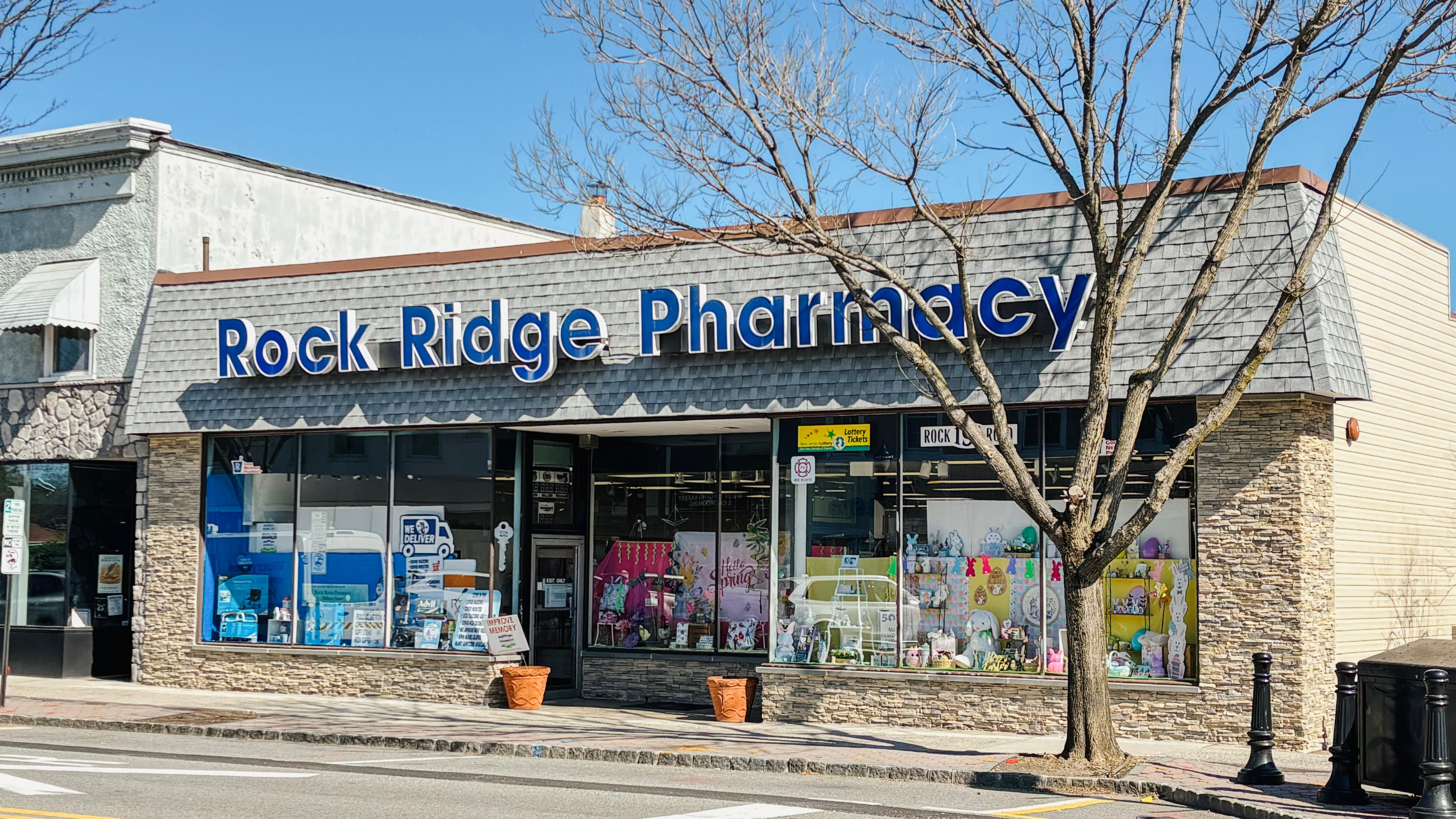DMSA vs. DMPS vs. EDTA: Which Chelator Is Right for You?
A clinical comparison of DMSA, DMPS, and EDTA in chelation therapy for heavy metal detoxification. Learn how each chelator works, their key differences, and when compounded DMSA from Rock Ridge Pharmacy may be the right choice for you.
Introduction: Understanding Chelation Therapy

Heavy metals such as lead, mercury, cadmium, and arsenic can quietly accumulate in the body over time. These toxins may affect brain function, cardiovascular health, immune strength, and kidney performance.
Chelation therapy is a medically guided process that uses specialized compounds — known as chelators — to bind to these metals so the body can safely eliminate them. While there are several types of chelating agents, the three most recognized are DMSA, DMPS, and EDTA.
At Rock Ridge Pharmacy, we focus exclusively on custom-compounded DMSA because of its proven safety, FDA approval, oral convenience, and broad-spectrum activity. This guide will help you understand how DMSA compares to other chelators, and why it’s often the preferred choice for both children and adults.
What Is Chelation Therapy?
Chelation therapy is a medical process that uses specialized agents to bind and remove toxic heavy metals from the body. Once attached, these toxins are safely eliminated through the urine.
Where Chelators Are Used
- Conventional medicine – treats acute heavy metal poisoning such as lead or mercury exposure.
- Functional medicine – manages chronic toxic burden linked to fatigue, brain fog, and immune dysregulation.
By reducing the toxic load of metals like lead, mercury, cadmium, and arsenic, chelation therapy supports better neurological, cardiovascular, and immune health.
At Rock Ridge Pharmacy , we focus on DMSA compounding — the only FDA-approved oral chelator, known for its safety, convenience, and effectiveness in both adults and children.
DMSA: The Safe, FDA-Approved Oral Chelator
DMSA (Dimercaptosuccinic Acid) is a water-soluble, sulfur-based chelator approved by the U.S. Food and Drug Administration (FDA) for the treatment of lead poisoning. Taken orally, it binds to heavy metals such as lead, mercury, and arsenic, which are then safely eliminated through the kidneys.
DMSA is highly regarded for its excellent safety profile and convenient oral administration, making it suitable for both pediatric and adult patients. Because it largely remains in the bloodstream — without significantly redistributing metals to the brain — DMSA is often the preferred choice in cases involving neurological concerns.
In functional medicine, DMSA is widely used for mercury detox protocols, particularly in patients with exposure from fish consumption or dental amalgams. While treatment requires multiple daily doses and may deplete beneficial minerals like zinc and copper, these effects can be managed with professional supervision and targeted supplementation.
At Rock Ridge Pharmacy, we prepare custom-compounded DMSA capsules in 100 mg, 250 mg, and 500 mg strengths — including filler-free options for sensitive individuals.
DMPS: Powerful but Requires Professional Oversight
DMPS (Dimercaptopropane-1-sulfonic Acid) is a sulfur-containing chelating agent with a strong affinity for mercury. Unlike DMSA, DMPS is not approved by the U.S. Food and Drug Administration (FDA), though it is widely used internationally and in certain functional and integrative medicine settings under close medical supervision.
DMPS may be given orally or via intravenous (IV) infusion, depending on patient needs and treatment protocol. It is often selected for individuals with a significant mercury burden — such as from dental amalgams, occupational exposure, or high fish consumption. In clinical practice, it is also commonly used for provoked urine testing to help identify hidden metal stores.
While DMPS can be highly effective, it also carries risks if used improperly. It may mobilize heavy metals too aggressively, particularly in individuals with weakened detoxification pathways. For this reason, professional oversight is essential, especially for IV use.
Potential side effects include rash, headache, fatigue, gastrointestinal upset, and in rare cases, redistribution of metals to sensitive tissues. Any consideration of DMPS therapy should be made with qualified medical supervision.
EDTA: Intravenous Chelation for Lead and Cadmium
EDTA (Ethylenediaminetetraacetic Acid) is a synthetic chelating agent approved by the U.S. Food and Drug Administration (FDA) in its calcium disodium form for treating lead poisoning in children and adults, as well as certain cases of cadmium toxicity. It binds strongly to divalent and trivalent metals — particularly lead and cadmium — so they can be safely eliminated through urine.
EDTA is administered intravenously in a supervised clinical setting, making it less convenient than oral chelators like DMSA. It is considered highly effective for lead and cadmium detoxification, but not effective for mercury removal.
Beyond toxic metal removal, EDTA has been explored in alternative cardiovascular protocols for vascular calcification and circulation support. However, these uses remain controversial in conventional medicine and require more research before becoming standard practice.
Because EDTA can also bind essential minerals like calcium, magnesium, and zinc, therapy requires professional monitoring and supplementation. Side effects may include low calcium levels, kidney strain, or gastrointestinal upset. For safety, EDTA should only be used under the supervision of an experienced healthcare provider in a hospital or infusion clinic.
Side-by-Side Chelator Comparison: DMSA vs. DMPS vs. EDTA
A quick reference to help patients and providers compare the key characteristics of each chelating agent.
| Feature | DMSA | DMPS | EDTA |
|---|---|---|---|
| FDA Approval | Yes (lead) | No (U.S.) | Yes (lead/cadmium) |
| Route | Oral | Oral or IV | IV only |
| Metals Removed | Lead, mercury, arsenic | Mercury, lead | Lead, cadmium |
| Safety | High | Moderate | Moderate |
| Pediatric Use | Approved | Limited data | Use with caution |
| Best For | General detox, children, neuro cases | High mercury burden, provoked testing | Industrial lead/cadmium exposure |
Always consult a qualified healthcare provider to determine which chelator is most appropriate for your condition.
Why DMSA Is Often the First-Line Choice
Although all three chelators (DMSA, DMPS, EDTA) have their place in medical practice, DMSA is frequently the preferred starting point for patients seeking a safe, effective, and user-friendly detox protocol. Its FDA approval, oral convenience, and broad-spectrum activity make it well-suited for children, adults, and those with chronic low-level exposures to heavy metals.
At Rock Ridge Pharmacy, we prepare custom-compounded DMSA capsules in 100 mg, 250 mg, and 500 mg strengths to meet each patient’s needs. Our pharmacists can create filler-free options for sensitive individuals, adjust formulations for children, and work directly with healthcare providers to ensure both dosing accuracy and treatment safety.
Getting Started with Chelation at Rock Ridge Pharmacy
Safe, customized DMSA solutions compounded with precision and care

Why Choose Rock Ridge Pharmacy?
Chelation therapy is not a one-size-fits-all solution. The right chelator for you will depend on factors such as your exposure history, health condition, age, and treatment goals. If your provider recommends DMSA for detoxification, Rock Ridge Pharmacy is here to support you every step of the way.
We offer custom-compounded DMSA capsules in 100 mg, 250 mg, and 500 mg strengths, along with filler-free options for sensitive individuals. Our pharmacists provide personalized dosing guidance and nutritional support to reduce side effects and optimize results. With fast, local service for New Jersey patients and providers, we make the chelation process seamless, safe, and individualized.
Call us: (201) 444-4190
Visit us: 191 Rock Road, Glen Rock, NJ 07452
Final Thoughts: Choosing the Right Chelator
Whether you’re managing lead exposure in a child, mercury accumulation from fillings or seafood, or chronic symptoms tied to toxic burden, chelation therapy can offer a safe path forward. Rock Ridge Pharmacy works hand in hand with providers in integrative, pediatric, and environmental medicine to prepare custom-compounded DMSA capsules in strengths tailored to your needs. Our goal is to help you detox safely, comfortably, and effectively — every step of the way.
Frequently Asked Questions (FAQ)
What is DMSA used for?
DMSA (Dimercaptosuccinic Acid) is an FDA-approved oral chelating agent primarily used to treat lead poisoning. It can also bind to mercury and arsenic under medical supervision.
Is DMSA FDA-approved?
Yes. DMSA is FDA-approved for the treatment of lead toxicity in children and adults. Its off-label use for mercury and arsenic detox is guided by integrative and functional medicine providers.
How is DMSA taken?
DMSA is typically taken orally in capsule form. At Rock Ridge Pharmacy, we compound DMSA into custom strengths such as 100 mg, 250 mg, and 500 mg for individualized dosing.
Can children take DMSA?
Yes. DMSA is approved for pediatric use in cases of lead poisoning. Dosing must be closely monitored by a healthcare provider to ensure safety and effectiveness.
What metals does DMSA target?
DMSA binds primarily to lead, mercury, and arsenic. It is less effective for cadmium or aluminum, which may require other chelating agents.
Are there side effects of DMSA?
Possible side effects include gastrointestinal upset, fatigue, or mild rash. It may also lower essential minerals like zinc and copper, so supplementation is often recommended during treatment.
How does DMSA compare to DMPS or EDTA?
DMSA is oral, safe, and FDA-approved, making it a first-line choice for many patients. DMPS is often used internationally for mercury but is not FDA-approved in the U.S. EDTA is IV-only and most effective for lead and cadmium.
How long does DMSA treatment last?
Treatment duration varies depending on exposure and lab results. Chelation cycles are usually done in rounds with breaks in between. Your provider will determine the safest protocol for your case.
Can I buy DMSA over the counter?
No. DMSA is a prescription-only medication and must be dispensed by a licensed pharmacy such as Rock Ridge Pharmacy, where it is custom-compounded to your provider’s specifications.
Where can I get DMSA in New Jersey?
Rock Ridge Pharmacy in Glen Rock, NJ provides custom-compounded DMSA capsules for local pickup and delivery to patients and providers throughout New Jersey.
Want to Learn More About DMSA Therapy?
Explore how custom-compounded DMSA capsules from Rock Ridge Pharmacy provide a safe, effective option for lead, mercury, and arsenic detox. Our pharmacists collaborate directly with your provider to ensure dosing accuracy and personalized care.
Trusted by New Jersey providers and families — Rock Ridge Pharmacy delivers expert guidance, safe formulations, and compassionate care for every chelation journey.



